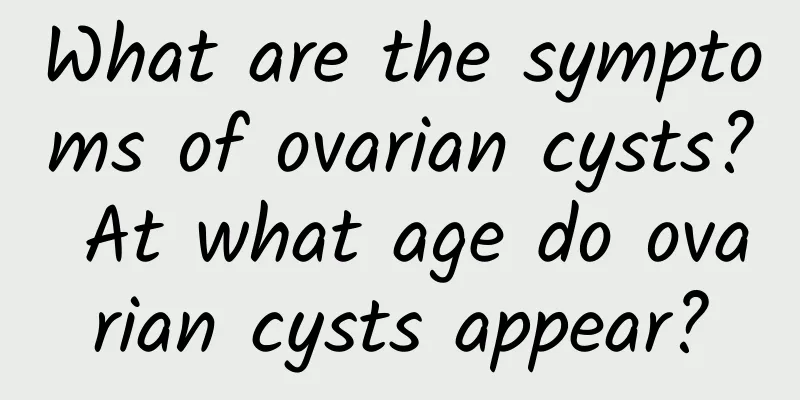Abnormal vaginal discharge, pain on left side of lower abdomen

|
Abnormal leucorrhea accompanied by pain when pressing the left side of the lower abdomen may be related to gynecological inflammation, pelvic disease or urinary system problems. You need to see a doctor promptly to identify the cause and receive targeted treatment. Abnormal vaginal discharge usually manifests as changes in color, smell or amount, such as yellow, green or with a peculiar smell, which may indicate gynecological diseases such as vaginitis, cervicitis or pelvic inflammatory disease. Pain when pressing on the left side of the lower abdomen may be related to ovarian cysts, fallopian tube inflammation or urinary tract infection. Ovarian cysts may cause local pressure or dull pain, fallopian tube inflammation is often accompanied by lower abdominal pain or distension, and urinary tract infection may cause urination pain or burning sensation. The appearance of these symptoms is often related to bacterial, fungal or viral infections, and may also be induced by decreased immunity, poor hygiene habits or unclean sexual life. For abnormal leucorrhea and pain when pressing on the left side of the lower abdomen, the following measures are recommended: 1. Medical examination: timely conduct gynecological examination, including routine leucorrhea examination, B-ultrasound or colposcopy, to identify the cause. If urinary system problems are suspected, urine routine examination or urinary system ultrasound examination is required. 2. Drug treatment: Choose drugs according to the cause. For example, metronidazole or clindamycin can be used for bacterial vaginitis; fluconazole or clotrimazole can be used for fungal infection; pelvic inflammatory disease requires the combined use of antibiotics such as ceftriaxone and doxycycline. 3. Surgical treatment: If it is confirmed to be ovarian cyst or hydrosalpinx, laparoscopic surgery or open surgery should be selected according to the condition. 4. Dietary adjustment: Eat more foods rich in vitamin C, such as citrus fruits, to enhance immunity; avoid spicy and greasy foods to reduce inflammatory stimulation. 5. Lifestyle habits: Keep the vulva clean and dry, avoid using irritating lotions; pay attention to hygiene before and after sexual intercourse, and use condoms to reduce the risk of infection. 6. Psychological adjustment: Avoid excessive anxiety and maintain a good attitude to help recovery. If symptoms persist or worsen, such as fever, severe abdominal pain, or vaginal bleeding, seek medical attention immediately to avoid delaying treatment. |
<<: Is cervical hypertrophy contagious?
>>: Etiology and pathogenesis of gynecological amenorrhea
Recommend
Can natural vitamin E prevent miscarriage?
Can natural vitamin E prevent miscarriage? Vitami...
How to induce menstruation when the endometrium is 7mm
When the endometrium is 7mm, you can consider tak...
What is a benign chocolate cyst? What are the precautions for chocolate cysts?
As environmental pollution becomes more and more ...
What are the causes of uterine prolapse? What is the best way to treat uterine prolapse?
Uterine prolapse, also known as uterine detachmen...
Which hospital is good for pelvic peritonitis?
Under the threat of gynecological diseases, femal...
What complications may occur due to irregular menstruation?
What complications will be caused by irregular me...
Kill fat instantly! 3 Cabbage Juices to Help You Lose Weight
Cabbage is a great food for weight loss. Because ...
What can you eat to treat dysmenorrhea? 4 kinds of food have the effect
Dysmenorrhea is a gynecological symptom. Due to t...
What is the best surgery for uterine fibroids? The whole process of hysteroscopic surgery for uterine fibroids
What surgery is best for uterine fibroids? Uterin...
How to use medicine for irregular menstruation? Teach you a blood-nourishing and pain-relieving porridge that has miraculous effects
Pain-relieving prescription - Blood-nourishing an...
Symptoms of early pregnancy need everyone to know
Abortion is the best way to help people solve unw...
Different types of pelvic inflammatory disease patients have different dietary treatments
Traditional Chinese medicine divides pelvic infla...
Common symptoms of irregular menstruation
Irregular menstruation is something women are all...
What is the effect of Panax notoginseng on uterine fibroids? How to use Panax notoginseng to treat uterine fibroids
What is the effect of Panax notoginseng on uterin...
How to treat habitual miscarriage? There are 6 treatments
In fact, pregnant women have a higher chance of h...









